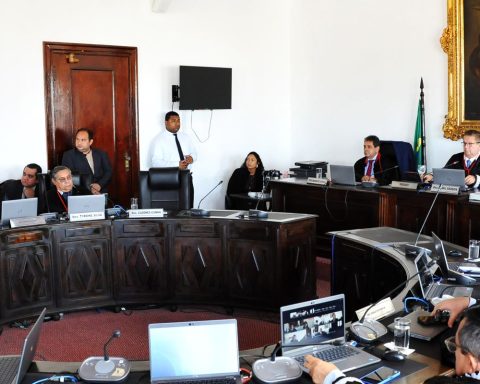The Fluminense Federal University (UFF) has become the first federal higher education institution in Rio de Janeiro to create quotas for trans people – who do not identify with the gender they were assigned at birth – in undergraduate courses. The decision was approved on Thursday (19) by the Teaching, Research and Extension Council.
Starting in 2025, 2% of undergraduate course places will be reserved for trans students. The university expects that more than 300 people will benefit from admission to higher education in the first year of the affirmative action policy.
“UFF made history”, celebrates the Vice-Rector of Student Affairs, Alessandra Siqueira Barreto, highlighting that the discussions that led to the approval of quotas are the result of student protagonism and dialogues with the university administration.
“It was a process of active listening. The university’s trans student groups are working to defend their issues and are taking this proposal to management. The draft was drafted jointly, and this strengthens this process,” he explains.
In postgraduate master’s and doctoral programs, 18 courses already reserved places for trans students. With the new policy, all programs must make at least one place available starting next year.
Headquartered in Niterói, a city in the metropolitan region of Rio de Janeiro, UFF has around 66 thousand students and nine campuses in the state.
The pro-rector said that a hetero-identification panel will be created to participate in the affirmative action process, a demand from the collectives. Hetero-identification is a complementary procedure to self-declaration, which consists of other people’s perception of the candidate’s self-identification.
Student permanence
Alessandra Barreto assured that the university will maintain close contact with trans quota students to offer support that serves as a shield against prejudiced and discriminatory behavior. According to her, 50% of the academic scholarships offered are intended for all quota students.
“It’s not just about admission. We now need to create protocols for student retention,” said the pro-rector.
According to the president of the National Association of Transvestites and Transsexuals (Antra), Bruna Benevides, “the organization’s fight goes beyond admission to universities, defending the permanence and academic success of trans people”.
The association intends to soon publish a letter with guidelines for the implementation of these quotas, addressing issues such as security and retention policies.
More universities
THE Federal Rural University of Rio de Janeiro (UFRRJ) is another institution that may decide to create a quota for trans students in undergraduate courses. In August, Rural, as it is known, released a schedule for the internal debate.
The other two federal units in the state are the Federal University of Rio de Janeiro (UFRJ) and the Federal University of the State of Rio de Janeiro (Unirio).
With UFF, at least 12 federal educational institutions have adopted a quota policy for the trans population. The most recent to join the list was the Federal University of São Paulo (Unifesp), which announced its decision on September 11.
The Federal University of Southern Bahia (UFSB) already applied the specific reserve in 2018. Other institutions are the Federal University of ABC (UFABC), University of International Integration of Afro-Brazilian Lusophony (Unilab), Federal University of Bahia (UFBA), Federal University of Lavras (UFLA),
Federal University of Santa Catarina (UFSC), Federal University of Santa Maria (UFSM), Federal University of Rio Grande (FURG), Federal University of Rondônia (UNIR) and Federal University of Goiás (UFG).
Across the country, the Law 14.723/23 determines that federal higher education institutions reserve places for “black, brown, indigenous and quilombola students and people with disabilities, as well as those who have completed their entire secondary or elementary education in a public school”.

















